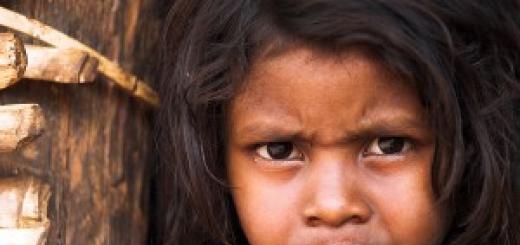The Decree of the Government of the Russian Federation of October 23, 2015 No. 2145-r approved the program "Promoting the creation in the subjects Russian Federation(based on the forecasted need) for new places in educational institutions” for 2016–2025 (hereinafter referred to as the Program).
The program was developed in accordance with the instructions of the President of the Russian Federation on the implementation of the Address of the President to the Federal Assembly of December 4, 2014. As noted in the document, "the need to implement the Program is due to the high social significance of the tasks to be solved to create conditions for obtaining high-quality general education."
According to Rosstat, which are given in the document, as of January 1, 2014, 10.8 thousand schools (24.8% of the total number of schools) taught in two and three shifts, in which more than 1.862 million people studied (14% of the total number of students). ). As of January 1, 2015, 13.27 thousand people studied in the third shift.
In 482 schools, 633 buildings are in disrepair, in 6192 schools 8261 buildings require major repairs, 4896 schools (11.2% of the total number of schools) do not have all types of amenities. In total, in 2015, over 9 thousand school buildings with a wear rate of 50-70% are used, 6 thousand - over 70%.
In addition, by 2025, the number of students in schools, according to the demographic forecast, will increase by 3.5 million people.
In order to achieve the goal set in the Program - "creation in the subjects of the Federation of new places in general educational organizations in accordance with the predicted need and modern requirements for learning conditions", it is necessary to solve such tasks as ensuring a one-shift mode of study in 1-11 ( 12th) classes of general education organizations and the transfer of students to new buildings of general education organizations from buildings with wear and tear of 50% or more.
At the first stage (2016-2020), by 2018, it is planned to eliminate the third shift, by 2021 to transfer grades 1-4 and 10-11(12) to one-shift training and maintain the existing single-shift training regime, as well as begin creating new places for the transfer of students from buildings with a high degree of wear.
At stage II (2021-2025), by 2025, it is planned to transfer 100 percent of students from school buildings with wear and tear of 50 percent or more to new schools and provide one-shift education for students in grades 5-9, while maintaining the existing one-shift training regime.
According to the approved Program, in order to implement the tasks set, it is planned to create: at the first stage - 2816.513 thousand new places in schools (1897.267 thousand places in urban schools and 919.246 thousand places in rural schools), including 2511, 717 thousand new places to provide training for the first shift and 304.796 thousand new places to transfer students from buildings with a high degree of deterioration; at the II stage - 3761.351 thousand new places in schools (2533.93 places in urban schools and 1227.421 places in rural schools), including 2041.502 thousand new places to provide education in the first shift and 1719, 849 thousand new places for the transfer of students from buildings with a high degree of deterioration.
Thus, the implementation of the Program will create 6.6 million new places, including 4.6 million places for teaching children in one shift, 2.0 million places for students who will move from school buildings from a high degree wear to new schools.
“The construction of new schools is planned using standard projects corresponding to modern requirements to the organization educational process, with the possibility of transforming the premises under different types training,” the Program says.
All this will require a lot of money. And they are provided by the Program. These are the means federal budget, funds from the budgets of the constituent entities of the Russian Federation (local budgets) and attracting extrabudgetary sources.
The total amount of financing of the Program for 2016-2025 will be 2835863.2 million rubles, including: at the expense of the federal budget - 1985104.2 million rubles; at the expense of the budgets of the constituent entities of the Russian Federation (local budgets) - 708965.7 million rubles; at the expense of extrabudgetary sources - 141,793.3 million rubles.
The effectiveness of the Program will be assessed annually by comparing the actual achieved values of target indicators (indicators) with their planned values.
The responsible executor and coordinator of the Program is the Ministry of Education and Science of the Russian Federation. The Minister of Education and Science of the Russian Federation is the head of the Program and is responsible for its implementation and final results, rational use funds allocated for implementation.
Senator Liliya Gumerova spoke about the initiative in the press center of Parliamentary Newspaper
Russian legislation relating to children needs to be further improved, the first deputy chairman of the Federation Council Committee on Science, Education and Culture is sure. The senator spoke about the upcoming changes at a round table in the press center of the Parliamentary Newspaper.
Funding for the construction of new schools needs to be increased
One of the most important "children's issues" that are in the field of view of the Chamber of Regions is the program for the construction of new schools.
15 million schoolchildren studying today in educational institutions Russia.
“Today, 15 million schoolchildren study in general educational institutions, of which 1.8 million study in the second shift, about 80 thousand in the third. At the same time, we have 4.5 thousand - these are wooden schools, and in 7860 educational institutions a major overhaul is required, - reminded Lilia Gumerova. And the number of students continues to grow. Based on these figures, according to our calculations, 25 billion rubles a year allocated to the program is not enough. We are actively taking the initiative to allocate an additional 10.2 billion rubles for this program.”
Members of the Committee of the Chamber of Regions on Science, Education and Culture have experience in such matters, recalled Lilia Gumerova: “When the program for creating places in kindergartens was being implemented, it was our committee that sounded the alarm that at some stage the necessary funds were not allocated to the subjects, We were supported by the Chairman of the Federation Council Valentina Matvienko, and as a result, the money was brought to the regions.”
Nevertheless, this time it will not be easy to achieve an immediate increase in project funding, the parliamentarian admitted.“We have a tight budget, we understand that,” she said. - Therefore, our committee came up with an initiative to extend the program for the construction of new schools until 2030 (currently it is calculated until 2025. - Ed.). But not at the expense of funding. That is, this does not mean that the money already included in the program can be stretched over more years.”
The senators are also ready to support some of the proposals of the subjects of the Federation regarding the conditions for participation in the program.
“One of these proposals concerns schools in rural areas,” Lilia Gumerova explained. - For example, today the conditions of the program do not allow using money from the federal budget for the construction of the complex " Kindergarten- elementary School". This is now recorded as misappropriation of funds.”
Children's camps will write new rules
The law on children's recreation, developed by them, has not disappeared from the agenda of the senators, which allowed all camps in Russia to start working according to the new rules this year.
“However, problematic points that will need to be adjusted, including with the help of legislation, remain in this area,” Lilia Gumerova admitted. - First of all, we lack the variability of children's recreation. The rules for the operation of all types of camps - out-of-town, round-the-clock, daytime stay - should be clearly spelled out. A clear normative base for each category of such institutions.
There is a lot of discussion about the idea that the program " Accessible environment”included the issues of summer recreation.
At the same time, the standards and requirements put forward to the camps should be the same, the parliamentarian added.
“When each municipality or region puts forward its own requirements for children's camps, this is wrong,” the senator said.
According to Lilia Gumerova, the availability of children's recreation remains an equally pressing problem.
“One of the main questions here is where to relax for children with handicapped health,” she explained. “Not all of our camps can accept such students.”
As the legislator noted, the Federation Council is aware that it will not be possible to reformat all camps in the country for the convenience of children with disabilities in the near future.
“But in each subject it would be logical to create at least a number of institutions where such guys could have a rest,” said Lilia Gumerova. “In this regard, the society is actively discussing the idea that the Accessible Environment program should also include the issues of summer recreation”.
The Federation Council considers it logical to create a unified federal register health institutions.
“Getting into this register would be a guarantee that a high-quality, interesting and safe vacation is organized in the camp,” the senator explained. - Now such registers are filled in each subject of the Federation, but this is not entirely correct. When choosing a camp for their child, parents should not view great amount resources. They need to be able to log into the federal registry portal and get all necessary information there - quickly and in one place.
Spring session - intense and fruitful
Summing up the results of the spring session, Lilia Gumerova called it "very tense and quite fruitful."
“About 300 laws were approved during 15 meetings. Moreover, the legislative activity of the senators themselves has noticeably increased - the chairman of the Federation Council, Valentina Matviyenko, also spoke about this, - said a member of the upper house. “About 80 bills were submitted to the State Duma, where we are the authors and co-authors, of which 19 became laws.”
One of the important priorities in the work of the Chamber of Regions, according to the parliamentarian, was the protection of the interests of the subjects of the Federation.
“A lot has been done in terms of rule-making in this direction,” she explained. - For example, it is on the initiative of the upper chamber that monitoring of the powers of the subjects of the Federation and their financial security is being carried out today. Based on the results of this monitoring, we will come up with solutions that will significantly improve the situation of the subjects. The fact is that at present the regions are very worried that they have a lot of powers, but there is not enough financial support.”
As Liliya Gumerova noted, a lot has been done to ensure that the legal framework that allows the subjects to reduce the share of commercial loans and increase the share of budget.
“I would also like to highlight the law on foundlings developed in the Federation Council, according to which children whose parents are unknown will receive a social pension similar to that received by other orphans on the occasion of the loss of a breadwinner,” the senator said.
"An important and sought-after time," the parliamentarian recognized a package that toughens responsibility for inciting children to commit suicide.
To improve the quality and accessibility of education, as well as the comfort and safety of schoolchildren's education, in 2016, within the framework of the Education Development project, the state program School-2025 began to operate.
Actual problems of the education system
Currently, in many schools in the Russian Federation, training is conducted in two or three shifts. Schools are overcrowded. Some of them are under-equipped and are in disrepair. The lack of teachers also plays a role.
According to Rosstat, as of January 1, 2014, 2-3 shifts were used in 24.8% of the country's schools. According to the demographic forecast, the number of students in the second shift will increase in the coming years, in some regions a transition to three-shift education is possible. More than 15,000 school buildings have wear rates above 50%.
The total need for new training places until 2025 is estimated at almost 7,389,869 places, taking into account the transition to a one-shift training mode and the decommissioning of buildings with a high wear rate.
The program involves the construction of new schools according to modern standard designs, the return to the education system of buildings that are now used for other purposes, re-equipment and modernization of premises, equipping classrooms modern means learning.
The School-2025 program is a way out of the current situation
Within the framework of the program, subsidies will be allocated to individual subjects of the Russian Federation for the implementation of the planned plan to create new educational places and complete (equip) schools in accordance with modern conditions learning.

The regional programs highlight the goals, objectives, justifications and deadlines for the implementation of specific activities in municipal districts, contain work schedules, volumes and terms of funding. These programs are approved by the highest executive bodies of state power.
Prime Minister Dmitry Medvedev said that the main goal of the School-2025 program is to "reach" new modern schools operating according to advanced standards, comfortably and naturally, without multi-shift operation. For this, it is planned to attract federal and regional resources.
The main objectives of the program:
- By 2018 - refusal of the third shift of training.
- By 2021 – transition elementary school and grades 10–11 for one-shift instruction.
- by 2024 – transition to one-shift education for grades 5–9.
- Construction of new schools, reconstruction and repair of old buildings, equipping classrooms with new equipment.
The program is designed for 10 years. The total amount of its financing is 2,835,863.2 million rubles. It will be provided through:
- state budget funds;
- funds of local budgets of subjects of the Russian Federation;
- extrabudgetary sources.
The responsible executor is the Ministry of Education and Science of the Russian Federation.
To become a member of the program you need:
- collect documents and submit an application;
- obtain approval of the application and financial resources for the implementation of the planned activities;
- to reconstruct, repair, re-equip.
Within the framework of the program, a coordination commission has been created, the purpose of which is to provide expert and analytical support for the implementation of measures to create new educational places and modernize schools in the constituent entities of the Russian Federation. The commission is engaged in:
- consideration and admission of applications of subjects for participation in the selection for subsidies from the state budget;
- evaluation of applications for compliance with the requirements;
- selection of regional programs for subsidizing;
- monitoring the implementation and effectiveness of regional programs;
- analysis of the effectiveness of the use of subsidies;
- initiation of inspections by the Ministry of Education.
The company "Rector" offers a comprehensive equipment of classrooms within the budget, in accordance with the requirements of GOST and the legally accepted list of training and education facilities. We independently select furniture and equipment according to individual projects, assemble it on the spot, arrange insurance and a guarantee. Cooperation with us frees you from the need to search and compare offers of suppliers, deal with the delivery and installation of equipment.










